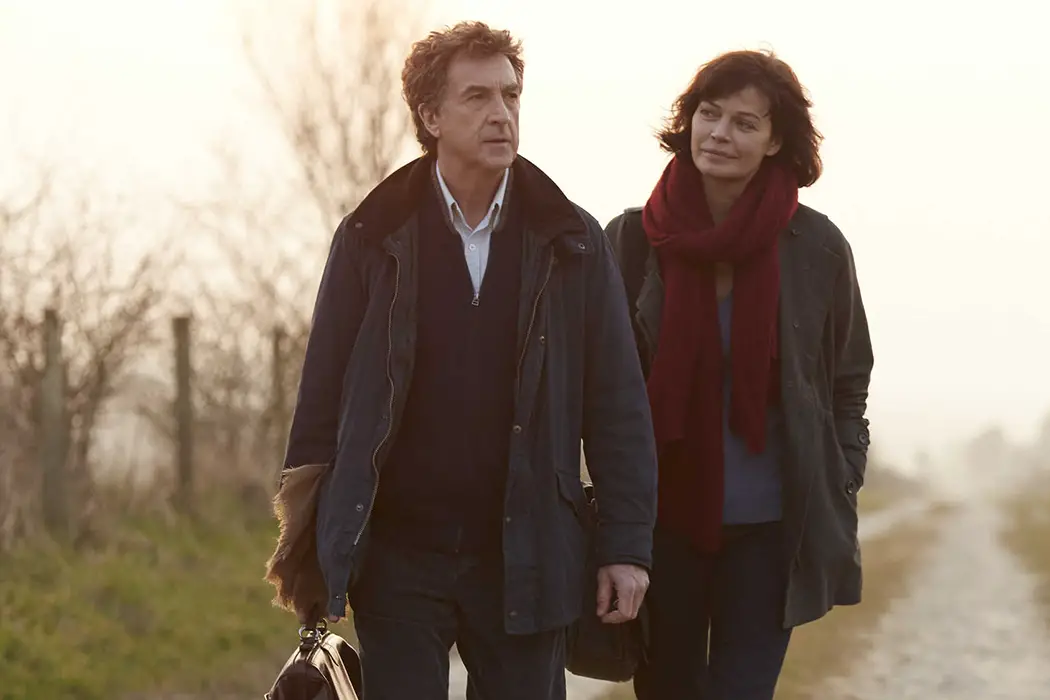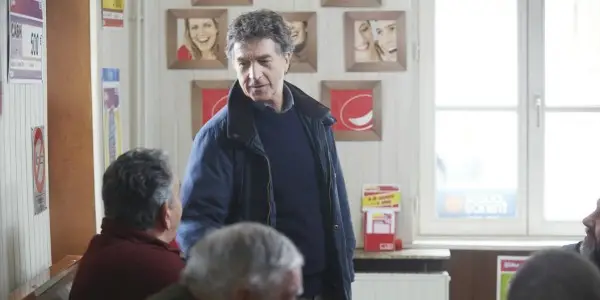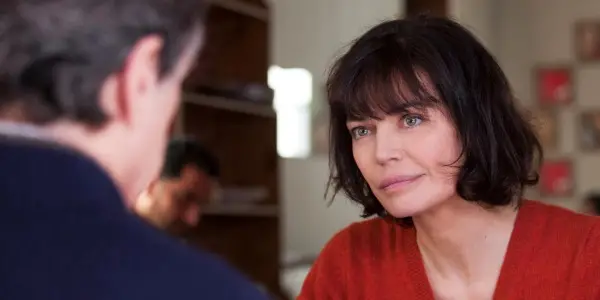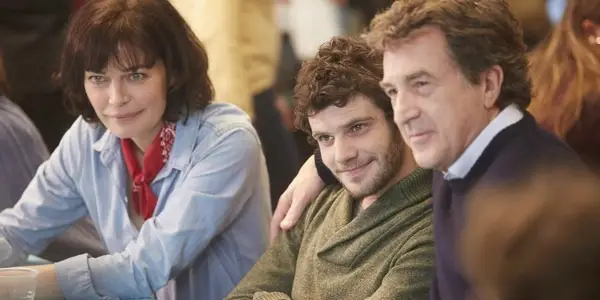THE COUNTRY DOCTOR: Deeper Than You’d Expect

It took me a while to discover the wonderful world…
There’s a new film genre that has emerged over the last few years. One so new that there is no consensus yet on a name.
Some films that encapsulate that genre; The Best Exotic Marigold Hotel and its sequel, And So It Goes, Quartet, and Hampstead. Pleasant films, starring over ’50s, with the general message that it’s never too late for a new start, or to find a new love.
Whilst there’s nothing essentially wrong with that, these films tend to be a little patronising and formulaic (Nathan Osborne‘s review of Hampstead goes into this in more detail). They don’t like to take risks, and generally, if you’ve seen one, you’ve seen them all.
With its older stars, and gentle demeanour, it seemed like The Country Doctor risked being another entry into this genre. Happily, though, there is more to this film than meets the eye.
Plot
Jean-Pierre Werner (Francois Cluzet) is diagnosed with an inoperable, potentially fatal brain tumour. His job as a country doctor is taxing, and it becomes clear that he’s going to need to train up a new medical practitioner in case the worst happens.

The doctor in question is Nathalie Delezia (Marianne Denicourt). After spending ten years as a nurse in a busy hospital, she retrained as a doctor, and moved to the country. Adjusting to the slower pace of country life is a struggle, though it’s not long before she has the hang of it.
But even as she shows herself to be more than capable, Jean-Pierre finds himself troubled by the thought of not doing the job he has done for decades. Coming to terms with no longer being irreplaceable proves to be his most difficult challenge.
Real Life Credentials
As well as being a filmmaker, writer/director Thomas Lilti is a doctor, and that medical knowledge is put to great use in The Country Doctor.
Much of the film is comprised of vignettes that appear so specific that they must have been borne out of real events; the young man who visits the GP with his girlfriend, angry that she has given him genital warts, the autistic man with a WW1 obsession, and an old man who wears so many clothes that the doctor can get through a fair bit of the newspaper before he’s fully undressed.
The procedures and the technical dialogue that take place in The Country Doctor always seem convincing, but never in a grandiose fashion.
Aside from Lilti‘s input, this is largely due to the performances of Cluzet and Denicourt (who had a small role in Lilti‘s previous medically-themed film Hippocrates). Both actors have a reassuring air about them; you get the feeling that you could trust them in a crisis. That calming manner makes them both utterly believable as doctors.

One area in which the medical accuracy appears a little off is in the portrayal of Jean-Pierre’s illness. To fit in with the narrative, in which Nathalie is unaware of his brain tumour, Jean-Pierre can’t suffer too visibly. But he doesn’t show any physical signs of being so gravely unwell, not even after having chemotherapy.
This isn’t really a film about cancer, so making Cluzet look at death’s door was probably not a priority of Lilti‘s. But to have him seem always perfectly healthy is a little odd. Though we are told that his chance of death is ‘fifty-fifty’, it doesn’t ever feel like a possible outcome, which lowers stakes that are already pretty darn low.
Leaning Out From Romance
Other than a general medical accuracy, Lilti deserves most credit for the way he steers clear of the obvious path of pushing Jean-Pierre and Nathalie into being a romantic couple.
There are frequent frissons. When Jean-Pierre gives Nathalie a medical examination, the spark between them is undeniable. Late in the film, at the country music fair, Jean-Pierre’s son seems quite keen on getting a new stepmother. But Lilti never takes it any further than that, which is both refreshing and gratifying.

The Country Doctor isn’t about romance, it’s about learning to accept help. Jean-Pierre is frosty with Nathalie when they first meet not because she’s woman, or because she’s his junior, but because she’s a walking reminder that he can’t be the sole saviour of the village anymore.
We see what a gruelling job being a country doctor can be, but we also see the rewards. To know everyone, and be known by everyone; to be right at the centre of village life. To be the one in charge of healing people. It’s understandable that someone wouldn’t want to give that up, or even share it.
Rather than earn his physical affections, Nathalie earns Jean-Pierre’s professional ones. As she starts to prove herself more as a help than a hindrance, he starts to see how having some assistance could actually be a good thing. This move in his way of thinking happens slowly, like most of the film’s events. As we have already learned from Nathalie’s experience, life does move slower in the country. But somehow, it makes the journey all the more meaningful.
The Country Doctor: Conclusion
Though The Country Doctor often plods along like one of the doctor’s elderly patients, the film has a stealthily endearing sweetness at its core. It’s hard not to fall for a film which has such a well-meaning ethos: the importance of community, and caring for one another.
It helps that Lilti eschews the obvious route of making the relationship between Jean-Pierre and Nathalie romantic. He has an unfailing sense of what he wants his film to be, and never falls into the commercialist traps of unnecessary romance and glib sentiment that permeate in films like The Best Exotic Marigold Hotel and Hampstead.
Every emotion generated by this film is hard-won and deeply felt. It may be slow, there may be few stakes, but if you want a film that is genuinely, authentically heartwarming, then you won’t go wrong with The Country Doctor.
Who’s your favourite film doctor?
The Country Doctor is out now in the UK. For all future release dates, click here.
Does content like this matter to you?
Become a Member and support film journalism. Unlock access to all of Film Inquiry`s great articles. Join a community of like-minded readers who are passionate about cinema - get access to our private members Network, give back to independent filmmakers, and more.
It took me a while to discover the wonderful world of cinema, but once I did, everything just fell into place.












